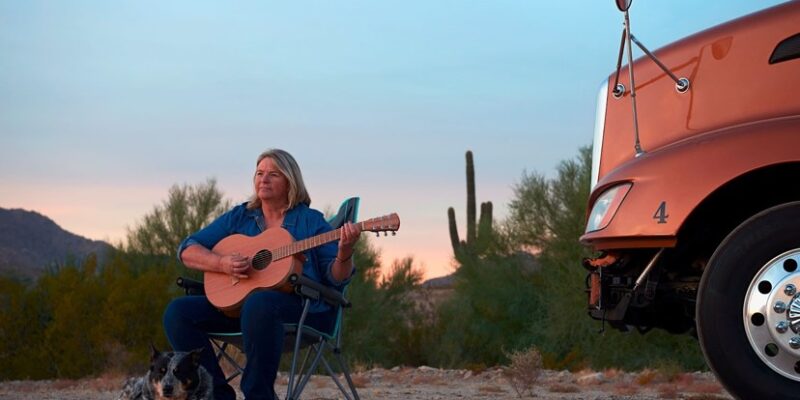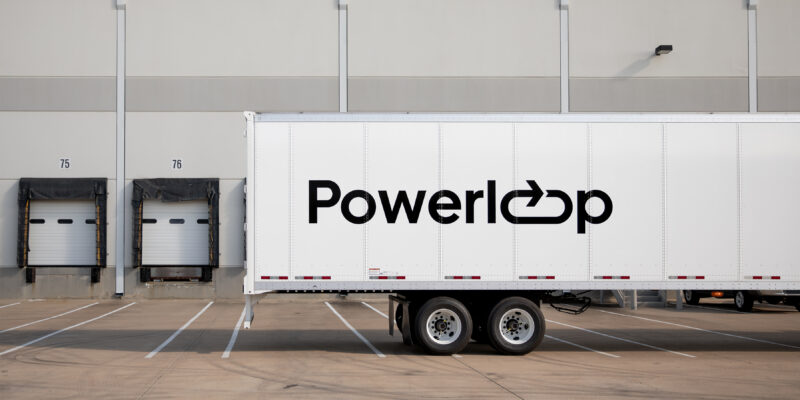Small fleet owner Alix Burton shares his tips on retaining drivers

Like many in the trucking industry, Alix Burton wanted to steer his own success. He realized quickly after high school that he didn’t want to work for anyone but himself, so he started his own party promotion company. Five years later, he decided he needed to switch to an industry with more stability and longevity. That’s when he discovered trucking.
After running into a friend that was doing well in the industry, Alix bought a box truck. His first foray into the industry, unfortunately, lasted less than a year. Despite this setback, Alix still believed trucking offered a great opportunity. Determined to succeed the next time around, he took a year off and committed himself to do serious research. “Once I identified what I did wrong, I gave it another shot,” he says.
This self-taught education has certainly paid off for Alix. In 2014, he started Good Energy Worldwide. After launching with just one truck, Good Energy now runs with a fleet of 11 trucks and a management team of fifteen.
Culture is a competitive advantage
The name of his company — Good Energy Worldwide — is no accident. “It’s a motto that I live by and I’ve transferred it over to my company,” Alix says. He credits the family-like atmosphere as essential to his success.
Alix believes it’s the small, personal things that he and his team do that helps set that at-home feeling for his drivers. In his research, Alix found one of the biggest driver complaints is that they feel like they are “treated like a number.” To let his drivers know that he cares, Alix and his team take the time to get know all of them on a personal level. The team makes sure every driver is referred to by name, and they acknowledge important events like birthdays and anniversaries. Other thoughtful touches include installing refrigerators and high-end mattresses in Good Energy trucks and hosting dinners and meet-ups.
Alix also makes sure to spread this feeling of goodwill outside of his company. In 2015, after seeing the Flint water crisis on the news, he organized a donation drive, sending two truckloads of bottled water to the distressed Michigan city. In 2017, he worked to fill up three truckloads of water for survivors of Hurricane Harvey in Houston.
Money management
When returning to trucking, one area that Alix focused on was securing financial stability. “This game right here, it’s a big-boy industry,” Alix says. “I had to sacrifice things personally in order to take my business to the next level.”
Alex paid a thrifty $9,000 for his first truck, and after investing a bit more, it was road ready. “It wasn’t the prettiest, but what I’ve learned is, it’s about duty, not beauty,” Alix says. “When I started making profits, instead of me using that and just spending it on frivolous things, I would reinvest it in my company.”
While maintaining profitability is important, Alix doesn’t believe in doing so at the expense of his team. He takes pride in making sure his numbers are right for him and his drivers. As Alix says, “It’s just my honor to pay [them].”
Hire right, stay tight
There’s a simple reason why Alix puts so much work into hiring the best and keeping his drivers happy. “You will lose more money hiring the wrong driver than letting your truck sit,” Alix says. According to Alix, referrals are the surest way to find high-quality drivers. Interviewing in person is also a must for him, even if he has to fly in the candidate.
Once Alix brings on someone new, he sets up clear expectations to shape the relationship from the outset. “I’m huge on communication. I understand that nobody’s perfect, but as long as I see that a driver’s trying and going in the right direction, I’m willing to work with them.”
Keeping a personal connection and respecting his drivers not only reduces turnover for Good Energy Worldwide, says Alix, but it also improves operations. Drivers go out of their way to help the company stay profitable — fixing small problems before they become big problems, like finding the best fuel rates possible. “I just sleep good at night knowing that these guys have my best interest [in mind],” Alix says.
Does Alix’s business practices work? Just ask one of his drivers Quenton Wages, who started working for Alix about a year ago. “He treats me like family,” says Quenton. “I probably would trust him with my life, if it came down to it.”
The views expressed in this post are solely those of the individual being featured. Experiences may vary.



